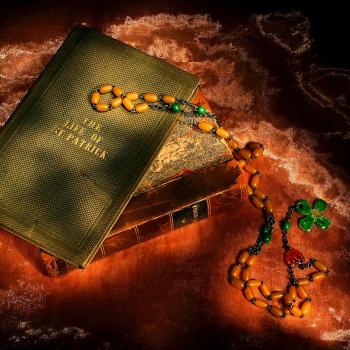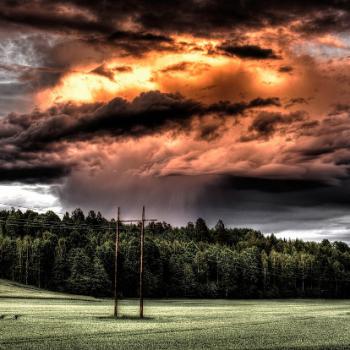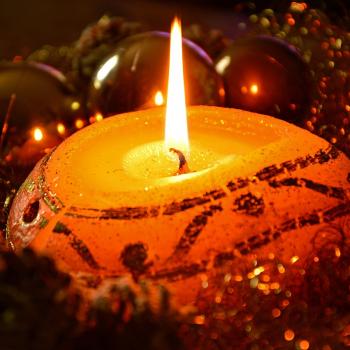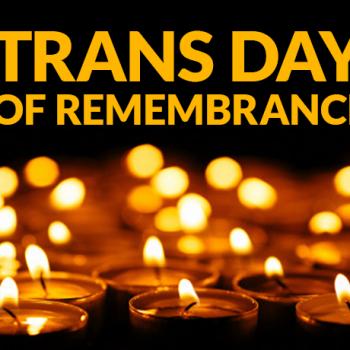
First of all, let me get one thing out of the way first: although much of rape culture mostly impacts what has been and is done to cis women by cis men, rape culture negatively impacts everyone. Trans women, trans men, non-binary/genderfluid individuals, and of course cis men too have all been victims of rape and/or sexual assault. So in our attempts to dismantle it and find ways to prevent problems from happening within our own circles we have to take that into consideration.
Much of rape culture has unfortunately impacted our groups and our communities. There’s no way to say this any more gently than this: pagans, polytheists, witches, magicians, occultists: we have been tolerant of way too many things for far too long, and it has hurt many people. We need to do a better job not only setting standards of appropriate behavior at gatherings, within circle, and outside of circles among each other. And it needs to be done both by example and an agreed upon code of conduct.
Absolutely every group, no matter how loosely organized, needs to have standards for what is and what isn’t acceptable behavior towards others. In addition, they also need to be able to have a series of steps to follow through if someone is believed to be in violation of these rules for any reason. Lastly, once the offense has been thoroughly investigated to be able to determine if said offense is severe enough to require expulsion from the group or is minor enough to warrant an attempt at education and/or reconciliation, and perhaps even a probationary period depending on the circumstances.
Pagan and occult groups have two factors going for them that requires a great deal of effort and consideration going into this:
- We attract non-mainstream people and are frequently seen as being more tolerant than other groups, so people who are prone to bad behavior frequently seek us out thinking that they will be able to get away with it. Unfortunately history has proven them to be correct.
- Many of our traditions include rituals and celebrations which are sexually charged and/or themed, and even our traditions themselves have elements within them which pertain to sexuality. And we come from a culture that does not always teach people on what is considered to be acceptable and appropriate behavior under those conditions.
On that first point, we have had a great deal of trouble in our communities with what amounts to missing stairs: people who time after time have behaved badly, assaulted people, used alcohol as an excuse, and so forth–but continue to get away with it because instead of correcting the problem, they have forced other people to work around them. And of course blame victims of their actions for “not knowing better what to expect around them.” It is unfortunately not unusual that there are people in our communities who do and say terrible things and yet for whatever reason they have not been called on it. It could be that they are besties with the leaders of the group, someone’s brother, anything like that–it doesn’t matter. For whatever reason they’ve been allowed to get away with it and people suffer as a result.
As for that second point, it’s necessary that we point out that having a tradition which deals with sex doesn’t mean that sex or sexual behavior is required. We shouldn’t have to tell people things like, “Hey, this event is clothing optional but that doesn’t mean that all bets are off. There should be no touching or contact without explicit consent.” But unfortunately, we do–and should, because rape culture is a very real thing and we cannot assume that every person we invite to a circle or ritual knows how to behave. Merely being present at a ritual does not imply consent, and people need to be made to understand this explicitly. All of these things should be spelled out and covered for people who are new to the group, and those already within a group should discuss among themselves what is acceptable versus not. Hence the need for a code of conduct.
And if you have any sort of ritual or gathering where sexual activity and/or behavior is not off the menu, it doesn’t mean that all codes of conduct and ability to consent goes out the window, either! People present must be able to clearly communicate what is and what is not off limits, and those limits must be treated by everyone else around them as sacrosanct. Anyone who has issues doing that will likely find themselves in an uncomfortable situation and wind up hurting both themselves and other people.
Enforcing boundaries and standards of acceptable behavior does not mean swinging the pendulum in the opposite direction, either. Situations must be handled on a case-by-case basis based on severity, whether or not it’s a person’s first offense, are there are other complaints in that vein, and so forth. In cases that are far less severe than rape and assault where it’s clear that communications went awry, things were spoken which were inappropriate, and other cases of a similar nature it’s crucial that we take these opportunities to do our best to educate and provide a path for people to learn better behavior. If people are unable to learn and are repeat offenders however, that’s the time to cut them loose.
Setting boundaries and standards should be a no-brainer for any spiritual or magical group, and enforcing them is something which absolutely has to be done. Any group which does not do this, is uncomfortable with doing this, or makes excuses not to do this isn’t a group that you should be a part of. Plenty of groups out there–probably every single one–has had issues in the past, but what you should find out is what they are doing at present in order to make sure that their history does not repeat itself.
















